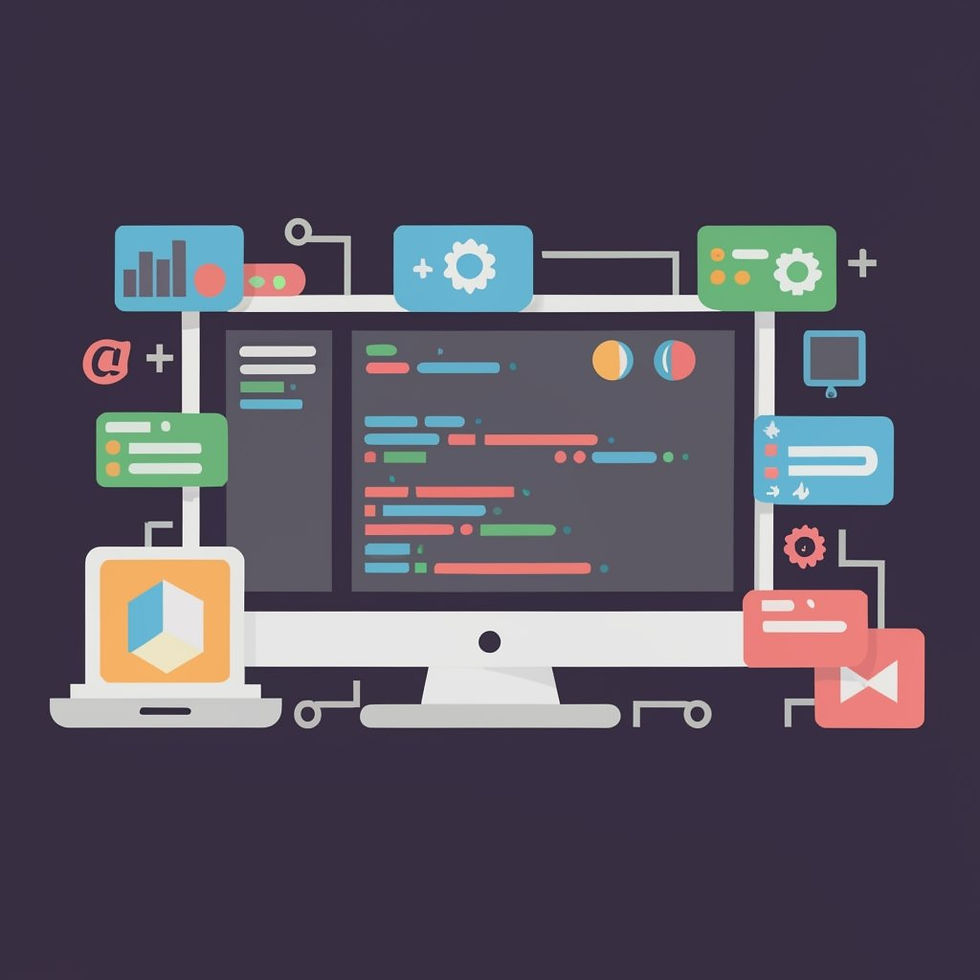Latest Trends and Applications in AI
- Digital Arts
- May 18, 2024
- 3 min read

Artificial intelligence (AI) is one of today's most transformative technologies, disrupting businesses and changing the way we live and work. In this article
, we will look at the most recent AI developments and applications, focusing on the advancements that are propelling the field forward. We'll also include links to helpful YouTube videos and Google resources for anyone who wish to learn more.
1. AI in Healthcare
AI is transforming healthcare with applications that range from diagnostics to personalised treatment plans. Machine learning algorithms can assess medical images with astonishing precision, allowing for the early detection of diseases like cancer. AI-powered systems such as IBM Watson help clinicians by making evidence-based therapy suggestions.
AI increases diagnosis accuracy.
Personalised treatment strategies are becoming more common.
AI tools assist medical practitioners with decision-making.
2. Natural Language Processing (NLP)
NLP has made great progress, making interactions with machines more intuitive. Tools such as GPT-4 (created by OpenAI) allow machines to understand and generate human language with great accuracy. Chatbots, virtual assistants, and language translation services are all available as applications.
Enhanced machine understanding of human language.
Wide applications in chatbots, virtual assistants, and translation.
Improved customer service and user experience.
Learn more on Google: Natural Language Processing
3. AI in Finance
AI is disrupting the finance sector by automating trading, enhancing fraud detection, and improving customer service through AI-driven chatbots. Predictive analytics help financial institutions manage risks and make informed decisions.
Automation of trading and improved risk management.
Enhanced fraud detection systems.
AI-driven customer service solutions.
4. Autonomous Vehicles
Self-driving cars are one of the most widely discussed AI applications, with businesses such as Tesla, Waymo, and Uber investing extensively on the technology. These vehicles use sensors, cameras, radar, and AI algorithms to navigate and make real-time choices, resulting in increased road safety and reduced traffic congestion. They can optimise routes, lower emissions, and improve ride-sharing services. Autonomous trucks also provide advantages for logistics and freight transportation. As technology progresses, improvements to traffic rules, road infrastructure, and cybersecurity measures will be required to facilitate the integration of self-driving vehicles.
Major investments in autonomous vehicle technology.
Improved safety and reduced congestion.
Enhanced urban mobility and logistics.
Need for updated regulations and infrastructure.
5. AI in Retail
Retailers are adopting AI to enhance customer experiences by providing personalised suggestions and better inventory management. AI examines data to provide specific product recommendations, which boosts sales and satisfaction. It delivers insights on customer behaviour, allowing marketers to optimise their campaigns and increase loyalty. Furthermore, AI forecasts product demand, allowing for ideal stock levels and streamlined supply chains, resulting in cost savings and efficiency. Overall, AI promotes better decision-making, addressing consumer requirements, and remaining competitive.
Personalized recommendations increase sales and satisfaction.
Optimized marketing strategies through customer behaviour insights.
Accurate demand forecasting improves inventory management.
Enhanced efficiency and cost savings in supply chain operations.
6. AI for Cybersecurity
AI plays an important role in cybersecurity, improving threat detection and response by analysing large amounts of data in real time to uncover patterns and abnormalities. It enhances the identification of minor risks, automates mundane processes, and prioritises alarms to enable faster reactions. AI also use predictive analytics to anticipate future threats and improves endpoint security by constantly monitoring devices. Overall, AI offers a strong, adaptive defence against more sophisticated cyberattacks.
Enhanced detection and response to cyber threats.
Identification of patterns and anomalies.
Automation of routine tasks and prioritization of alerts.
Predictive analytics for future threats.
Continuous monitoring for endpoint security.
Learn more on Google: AI in Cybersecurity



Comments